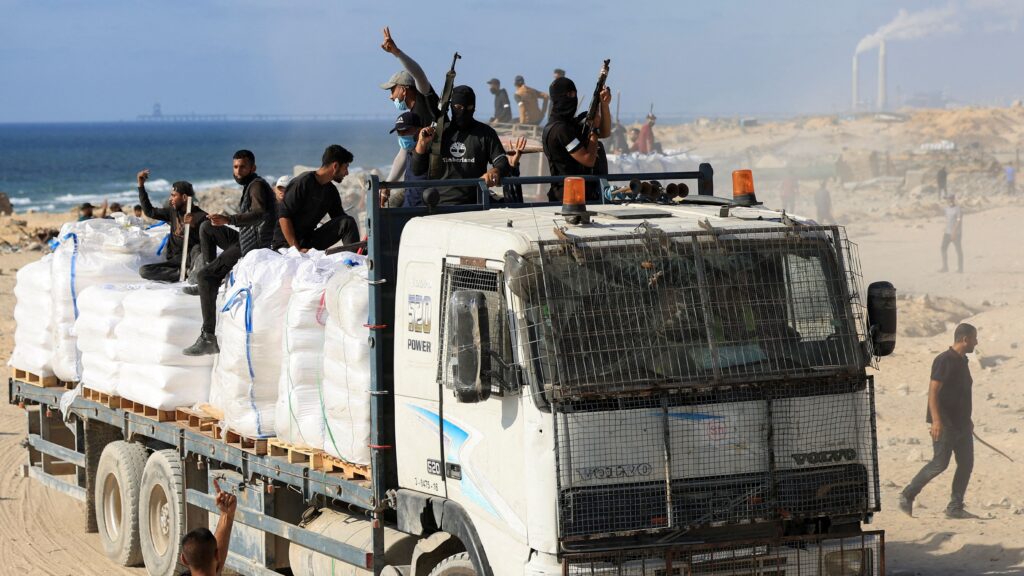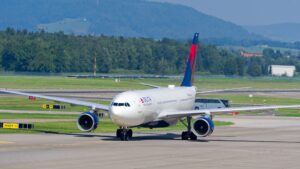
Successful efforts by local Palestinian groups to deliver aid to northern Gaza have sparked a strong response from the Israeli military and led to violent looting by criminal gangs. On Wednesday, for the first time in a month, local tribes organized the entry of relief into the besieged region, drawing ire from Israeli officials and parts of the Israeli public.
Northern Gaza has been under a complete blockade since March, when Israel halted all aid and goods, resulting in a severe hunger crisis. In contrast, the Gaza Humanitarian Fund (GHF), a U.S. and Israel-backed aid organization, began limited food distribution in southern and central Gaza in late May. However, the northern enclave remains largely isolated from these efforts, with Israel only recently permitting a small number of trucks carrying wheat flour to enter certain areas.
Local Efforts and Israeli Response
According to local reports, the recent relief operation, supported by local clans, saw several trucks successfully enter northern Gaza, with their contents distributed on Thursday. Footage circulating online shows dozens of trucks from the United Nations World Food Programme entering the area, guarded by armed tribesmen to prevent looting by local gangs. Despite these precautions, a subsequent batch of essentials was stolen on Thursday.
Amjad al-Shawa, who oversees civil society groups in Gaza, reported that 50 trucks destined for Gaza City were looted. Shawa accused the gangs of operating under the protection of the Israeli military to “sow chaos” and divert aid.
“Israel seeks to perpetuate chaos and disorder in Gaza, and does not want the aid distribution process to adhere to humanitarian standards,” said Amjad al-Shawa, a civil society leader in Gaza.
Shawa emphasized the need to bolster the role of UN humanitarian organizations and other groups that have long been active in Gaza. He accused Israel of attempting to disrupt the humanitarian system by preventing aid entry through international institutions and instead relying on an American security company, thereby inciting internal violence among Gaza’s citizens.
Israeli Government’s Stance and International Reactions
Israeli Prime Minister Benjamin Netanyahu has previously acknowledged arming gangs in Gaza, which aid groups accuse of stealing vital humanitarian aid to counter Hamas. Earlier this month, Netanyahu stated that his government had “activated” powerful local clans in Gaza on the advice of security officials, following allegations by former defense minister Avigdor Lieberman that an Israeli-backed gang was linked to the Islamic State group.
“We made use of clans in Gaza that are opposed to Hamas… What’s wrong with that?” Netanyahu said in a video posted on X.
Meanwhile, Israel has faced condemnation for targeting Palestinian police and security personnel attempting to combat looters and criminals in Deir al-Balah, central Gaza. The Ministry of Interior and National Security in Gaza criticized Israel’s actions as efforts to destabilize the region and discourage security forces from protecting the public.
“The police and security services will continue to pursue thieves and those collaborating with the occupation, striking them with an iron fist,” the ministry stated.
Continued Blockade and Humanitarian Concerns
As Palestinian efforts to bring aid into north Gaza succeeded, Netanyahu ordered new restrictions on the region following backlash from political leaders, including Finance Minister Bezalel Smotrich. Smotrich threatened to leave Netanyahu’s coalition after videos of aid trucks entering north Gaza surfaced.
The Gaza government disputed claims by Netanyahu and Defense Minister Israel Katz that Hamas was taking over aid efforts, asserting that Palestinian families and clans secured the aid convoys without interference from the government or factions. They accused Israel of fabricating lies to justify the continued blockade and starvation of over 2.4 million Palestinians.
Israel has previously accused Hamas of diverting aid, maintaining that the blockade is partly to prevent such occurrences. However, Cindy McCain, executive director of the World Food Programme, refuted these allegations, stating that much of the looted aid is seized by impoverished Palestinians.
The situation in Gaza remains tense, with international observers closely monitoring developments. The humanitarian crisis continues to escalate, with calls for increased international intervention and support for the besieged population.






